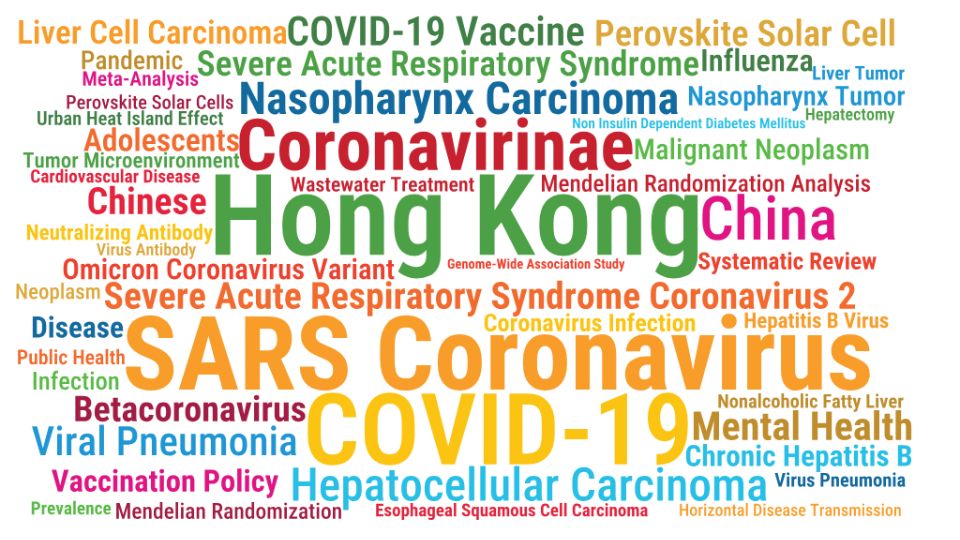Tag: Citations

Research Impact beyond the Academia 2: Policy Citations
— by Chloe Ng In the previous post, we discussed the use of patent citations as alternative metrics to measure research impact beyond academia. In this post, we will focus on policy citations, which try to showcase the impact of research on policy, law and regulation. Policy Metrics Policy documents refer to documents prepared by…
Read More
Research Impact beyond the Academia 1: Patent Citations
— by Chloe Ng Introduction Citation metrics, which measure the number of citations a publication receives from other scholarly publications, are commonly used as indicators of research performance. However, these metrics often fall short in capturing the broader societal impacts of research. This blog post explores alternative indicators of impact, providing insights from patent citations…
Read More
Viewing HKU Research Through the SDG Lens
— by Chloe Ng Continuing from our previous blog posts1 in presenting HKU’s research contributions to the Sustainable Development Goals (SDGs), this year’s post tracks HKU research performance across the 16 SDGs2 during 2019-20243, and explore changes in individual SDGs and topics over time. HKU Publications Contributing to Sustainable Development Of the 48,284 scholarly outputs…
Read More
Unmasking and Combating Publishing Malpractices 2: Citation Manipulation
— by Fanny Liu In the previous post (Unmasking and Combating Publishing Malpractices 1: Paper Mills), we discussed publishing malpractices focusing on the issue of paper mills. While traditional fraud and misconduct continue to exist, “post-production” manipulations, i.e., manipulations regarding the publication process and the impact, rather than the content of the publication, come into…
Read More
HKU Contribution to Sustainable Development: Committed, Comprehensive, and Crucial
— by Chloe Ng The 2030 Agenda for Sustainable Development (United Nations, 2015) provides a shared roadmap for achieving sustainable development by year 2030. Central to this agenda are the 17 Sustainable Development Goals (SDGs), which emphasize the need for global partnership to address pressing challenges and create a better world for present and future…
Read More
Select the Citation Management Tool That Best Suits Your Needs: EndNote vs. Zotero
— by Cheryl Lee Citation management tools can greatly help researchers organize, store, and cite references, saving valuable time for your academic research. This blog post will introduce two popular citation management tools, EndNote and Zotero, to provide you with some ideas so that you can select the one that best suits your learning and…
Read More
Beyond citations — Demonstrate your research impact with alternative metrics
— by Fanny Liu Introduction to Altmetrics Alternative metrics (also known as altmetrics) indicate the attention of scientific outputs which are shared, mentioned, and discussed in online environments, which are derived from users’ actions on various social media platforms and other online sources (e.g., Wikipedia) [1]. Altmetric.com is a platform to find altmetrics for research…
Read More
A Review of HKU’s Research Contributions to the Sustainable Development Goals (SDGs)
— by Stella Chow Introduction The QS World University Ranking evaluates universities’ contributions to global sustainability by incorporating the United Nations’ Sustainable Development Goals (SDGs) into its methodology. QS uses a set of indicators, such as research output, academic reputation, and impact, to assess universities’ performance in each SDG, which are then combined to give…
Read More
Zotero: Managing Research Materials in a Better Way
— by James Chen Struggling to manage all your academic papers and still spending hours manually editing the citations and references list? Don’t worry. In this blog, we will introduce a reference management tool called Zotero, which will assist you in reading, citing, referencing, and managing academic papers more efficiently. 1. What is Zotero? Zotero…
Read More
Ways to boost your citations – Data Sharing
— by Florence Ng Data sharing is getting support from the academic communities as favourable practice in scholarly publishing. It can enable researchers to replicate findings, build on others’ expertise, and reuse existing data for making new discoveries (Gilmore et al., 2018). While it brings key benefits to scientific progress and the whole research community,…
Read More